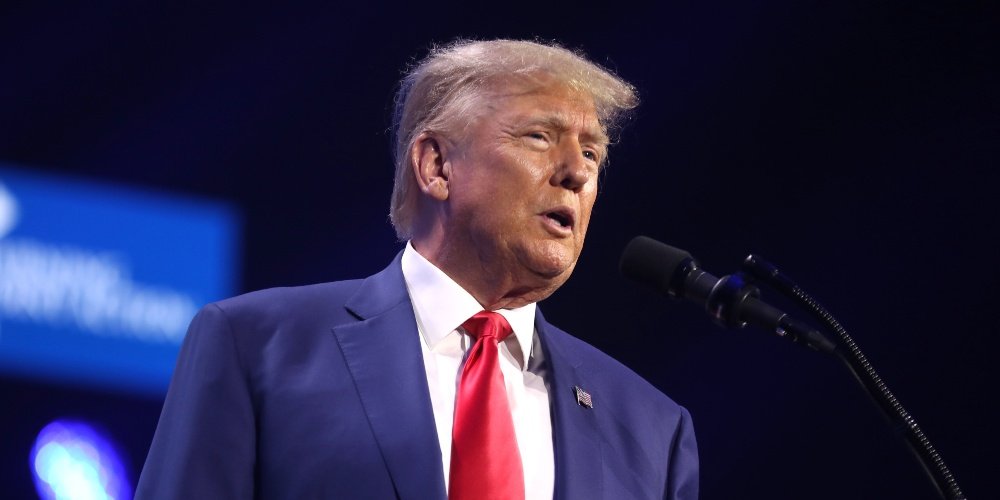(The Epoch Times)—President-elect Donald Trump said on Dec. 24 that he plans to direct the Department of Justice (DOJ) to pursue the death penalty against the worst violent offenders.
His remarks came a day after outgoing President Joe Biden commuted the sentences of 37 death row prisoners to life in prison, including several mass murderers and child killers.
Trump first criticized Biden’s decision to grant the commutations—in all cases to murder convicts—writing in a post on Truth Social that relatives and friends of the victims are “further devastated” by the move. The president-elect then declared in a separate post his intention to prioritize justice for victims of violent crime and broaden the use of capital punishment.
“As soon as I am inaugurated, I will direct the Justice Department to vigorously pursue the death penalty to protect American families and children from violent rapists, murderers, and monsters,” Trump wrote in the post. “We will be a Nation of Law and Order again!”
Besides generally signaling a tough-on-crime approach for his administration, Trump’s message suggests he intends to pursue legal reform that would restore the use of the death penalty as a punishment in cases of rape.
A 1977 decision by the U.S. Supreme Court in Coker v. Georgia, however, rendered the death penalty for rape unconstitutional in cases where adult victims survived the assault, further narrowed to include surviving child victims by a ruling in Kennedy v. Louisiana in 2008.
This is not the first time Trump has signaled his intention to expand the use of capital punishment and reverse the moratorium on federal executions imposed by Biden. Throughout his presidential campaign, Trump signaled he would undo the moratorium and make more categories of criminals eligible for capital punishment, including child rapists and drug and human traffickers.
During Trump’s first term in office, the federal government carried out 13 executions after resuming federal executions in 2020, following a 17-year hiatus. This marked the highest number of federal executions carried out under a single president since the 1950s and reflected Trump’s long-standing pledge to get tough on crime.
The Biden administration, by contrast, has prioritized a shift away from the death penalty in favor of life sentences without parole for nearly all crimes.
Biden, in a Monday statement explaining his actions, said his commutation decision was driven by a commitment to ending the federal death penalty, which he believes is inconsistent with a just and effective legal system.
“These commutations are consistent with the moratorium my Administration has imposed on federal executions, in cases other than terrorism and hate-motivated mass murder,” Biden said.
“Make no mistake: I condemn these murderers, grieve for the victims of their despicable acts, and ache for all the families who have suffered unimaginable and irreparable loss. But guided by my conscience and my experience as a public defender, chairman of the Senate Judiciary Committee, Vice President, and now President, I am more convinced than ever that we must stop the use of the death penalty at the federal level.
“In good conscience, I cannot stand back and let a new administration resume executions that I halted.”
Biden’s decision to commute the sentences of convicted killers sparked outrage among many conservatives, while the American Civil Liberties Union (ACLU) celebrated the move, pointing out that it aligned with calls from more than 130 civil and human rights organizations, faith leaders, exonerees, victims’ family members, and law enforcement officials urging Biden to act on federal death row cases.
“President Biden has reaffirmed the power of redemption over retribution and reminds us that state-sanctioned killing does not make us safer,“ Anthony Romero, executive director of the ACLU, said in a statement. ”The ACLU has long advocated against the death penalty and shed light on its fundamental flaws: it is error prone, racially biased, and a drain on public resources.”
Critics of the death penalty, including the ACLU, argue that the punishment does not serve as a significant deterrent to violent crime and that the high costs associated with capital trials and prolonged appeals could be better spent on crime prevention and victim support.
Supporters of capital punishment argue that it serves as ultimate justice for heinous crimes, provides closure to victims’ families, and that the financial burden of executions is a necessary cost to uphold justice and deter would-be offenders.
In his Dec. 23 decision, Biden commuted the sentences of 37 out of 40 death row inmates. The three federal inmates who continue to face execution are 2013 Boston Marathon bomber Dzhokhar Tsarnaev; Dylann Roof, who fatally shot nine people at a church in South Carolina in 2015; and Robert Bowers, who fatally shot 11 congregants at Pittsburgh’s Tree of Life Synagogue in 2018.
What Would You Do If Pharmacies Couldn’t Provide You With Crucial Medications or Antibiotics?
The medication supply chain from China and India is more fragile than ever since Covid. The US is not equipped to handle our pharmaceutical needs. We’ve already seen shortages with antibiotics and other medications in recent months and pharmaceutical challenges are becoming more frequent today.
Our partners at Jase Medical offer a simple solution for Americans to be prepared in case things go south. Their “Jase Case” gives Americans emergency antibiotics they can store away while their “Jase Daily” offers a wide array of prescription drugs to treat the ailments most common to Americans.
They do this through a process that embraces medical freedom. Their secure online form allows board-certified physicians to prescribe the needed drugs. They are then delivered directly to the customer from their pharmacy network. The physicians are available to answer treatment related questions.



